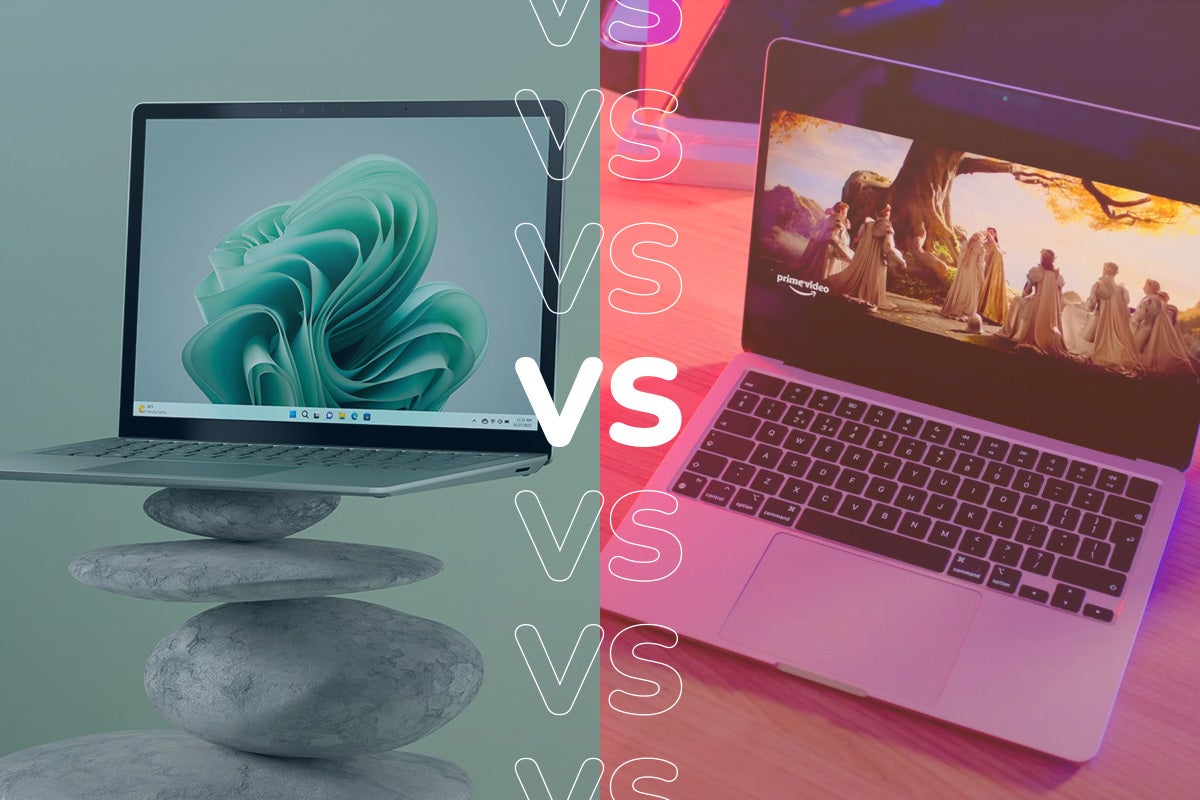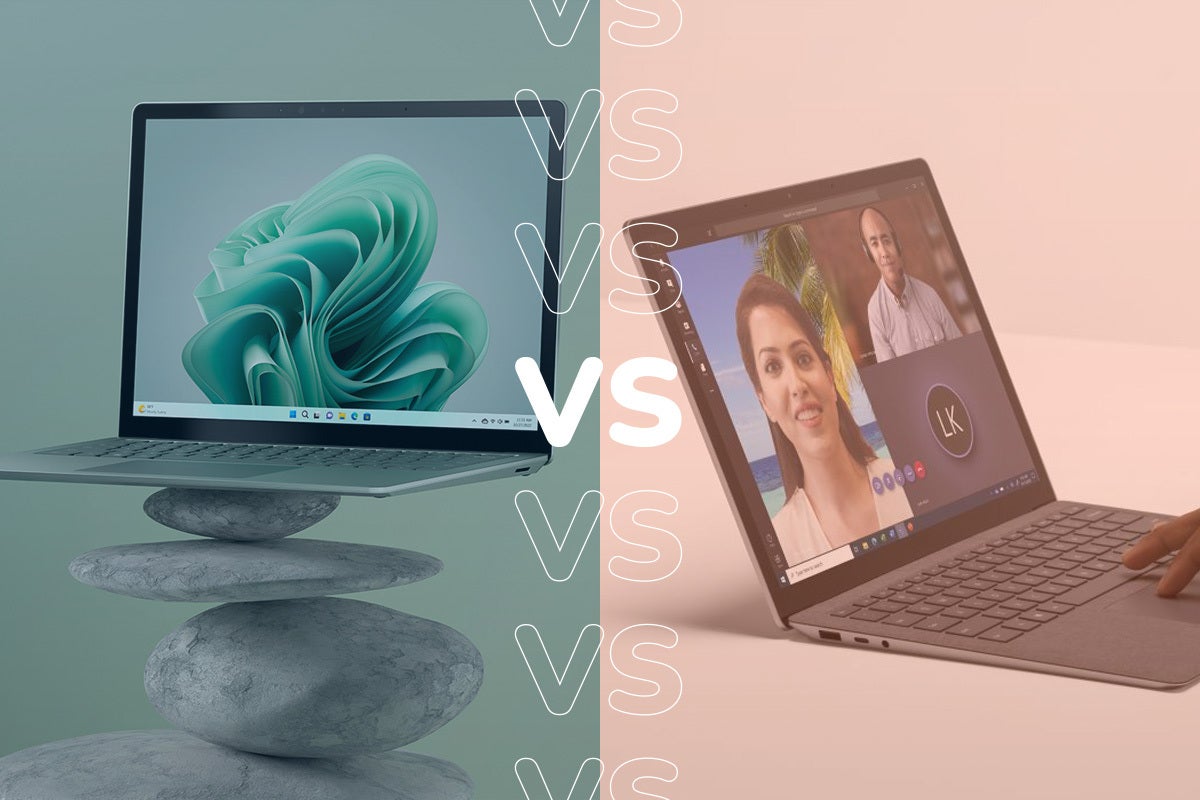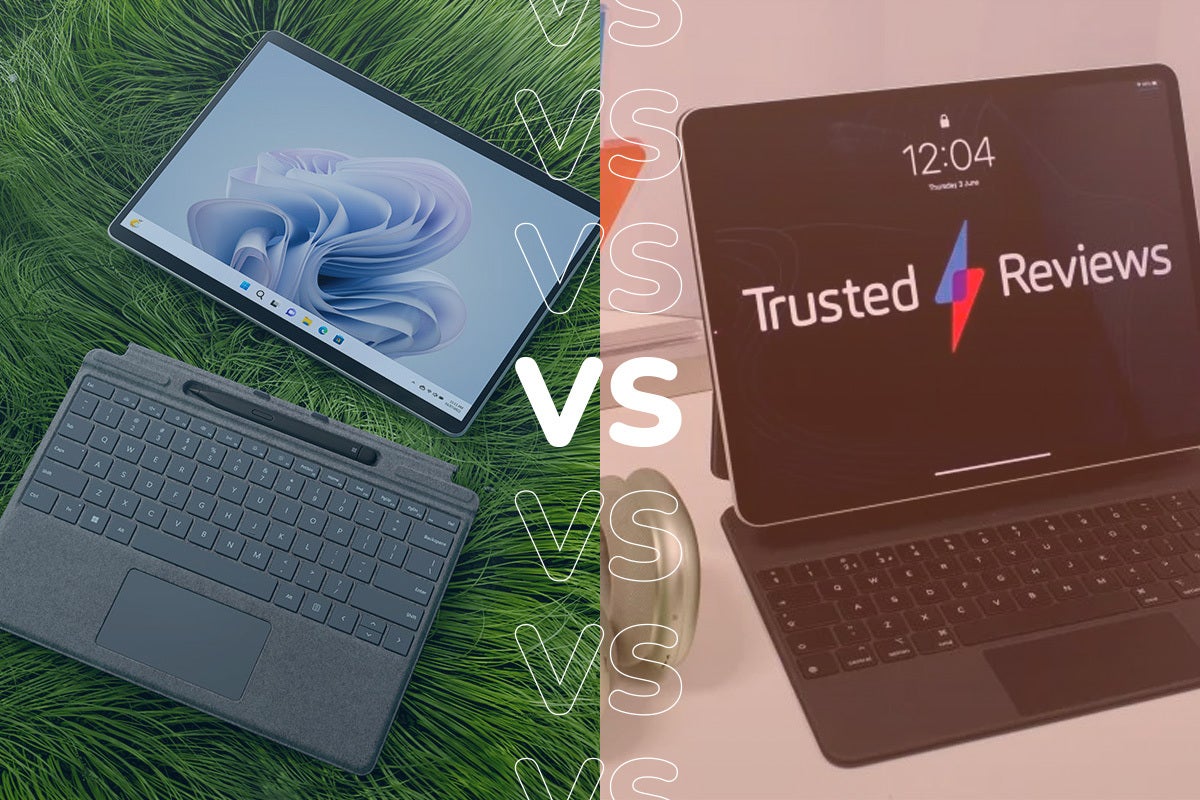Microsoft Surface Pro 9 vs Surface Pro 8: Which is better?
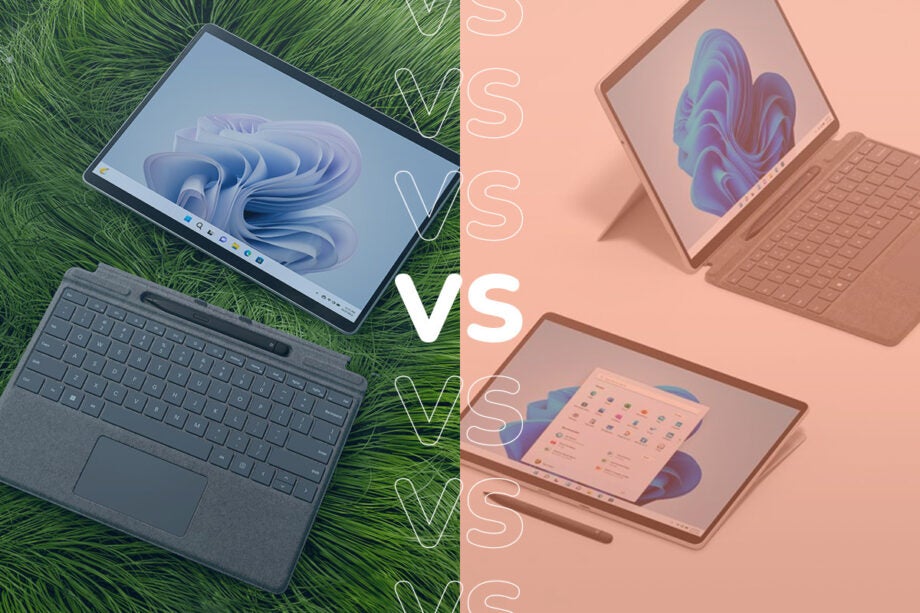
Microsoft recently announced a new batch of laptops, including the Surface Laptop 5, Surface Studio 2+ and the Surface Pro 9.
The Surface Pro 9 is a 2-in-1 laptop, doubling as a tablet thanks to the touchscreen and detachable keyboard. Keeping in trend with the last few Surface Pro releases, you will need to purchase the Type Cover in addition to the Surface Pro 9 to use it like a clamshell laptop.
With the release of these new devices, we have to ask how they compare to their predecessors. If you’re interested in checking out what new features and design elements Microsoft has brought to its latest hardware make sure you keep reading, as we’re going to be running through the key differences between the Surface Pro 9 and its predecessor, the Surface Pro 8.
The Surface Pro 9 is available with a Snapdragon processor
The Surface Pro 8 can be found with an 11th-generation Intel Core i5 or i7 processor, both of which were built on the Intel Evo platform.
Looking at the latest generation of the Surface Pro, Microsoft has branched out in terms of the CPU, offering up 12th-generation Intel Core i5 and i7 processors, as well as the Microsoft SQ3 processor which is a custom Qualcomm Snapdragon chip.
The Microsoft SQ3 variation comes with 5G capabilities, meaning that people will be able to browse the web and watch movies on their laptops without internet access. However, we saw a similar chip in the Surface Pro X and found that it may affect performance and potentially suffer compatibility issues with certain Windows apps.
However, we won’t know how well the laptop performs until we get it in for testing.
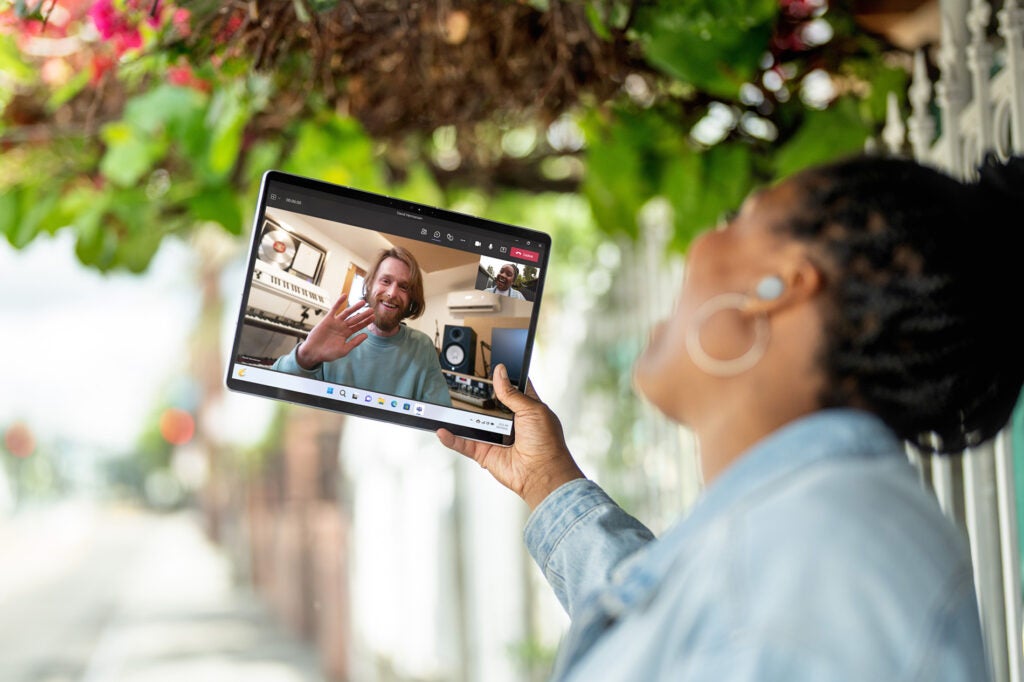
The Surface Pro 9 has 5G capabilities
The Surface Pro 9 comes in a 5G variation, although it is exclusive to the Microsoft SQ3 model. This was not a feature that could be found on the Surface Pro 8 when it launched, although Microsoft did eventually release a version of the Surface Pro 8 that has 4G LTE support.
The inclusion of 5G is an upgrade and should allow for faster and more stable browsing than 4G LTE support as it should provide higher speeds, less latency and suffer from less overall interference. But you will need to insert a 5G-enabled SIM card in order to benefit from this feature.
No headphone jack on the Surface Pro 9
Looking at the listed ports for the Surface Pro 9, we can see that it will include two USB-C ports – both with Thunderbolt 4 support – one Surface Connect port as well as a Surface Keyboard port. The 5G variation of the laptop will also come with a nano-SIM port.
That means that the latest Surface Pro won’t come with a 3.5mm headphone jack, which means that any prospective buyers will either need to use a wireless audio device or the laptop’s own speakers. This is a curious decision as the Surface Pro 8 did include a 3.5mm audio jack, alongside the other ports that are already listed, and it may turn off some customers from upgrading.
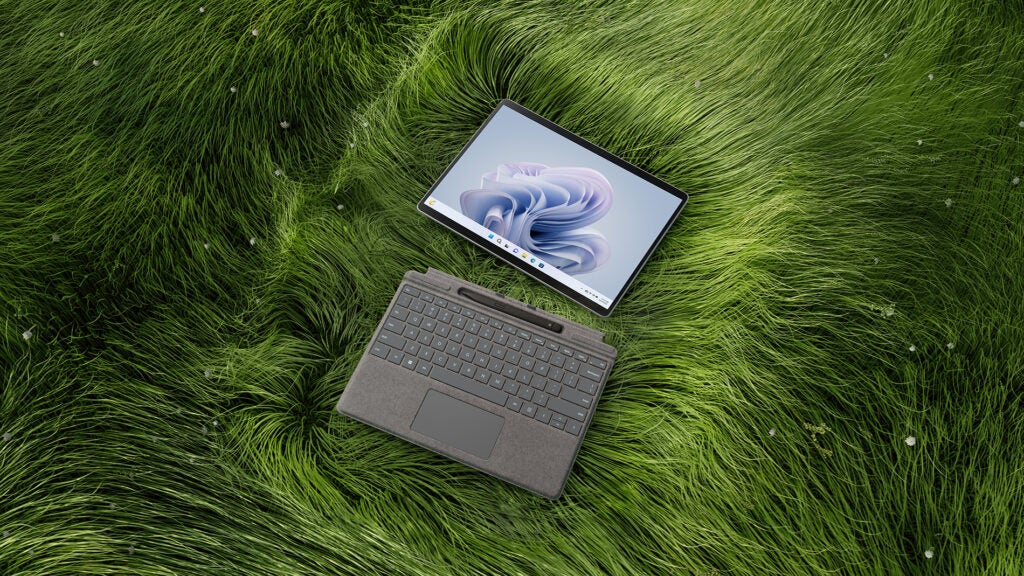
The Surface Pro 8 may have a longer battery life
Microsoft claims that the Surface Pro 8 can last up to 16 hours during regular day-to-day use, meaning that it should be able to last through most people’s workdays with ease.
Since we haven’t been able to test the Surface Pro 9 yet we can’t make any definitive claims on its battery, however, the company claims that this laptop can last up to 15.5 hours during typical use, which suggests it won’t have the same lifetime as its predecessor.
Despite this, Microsoft claims that the Surface Pro 9 5G can last up to 19 hours during typical use, which would blow both the Surface Pro 8 and Surface Pro 9 out of the water. This isn’t too surprising, and Qualcomm chips are considered to be more power efficient than Intel processors, but aren’t quite as speedy.
We will be sure to test the battery life of the new laptop once we get them in for testing to see which model can last the longest.


